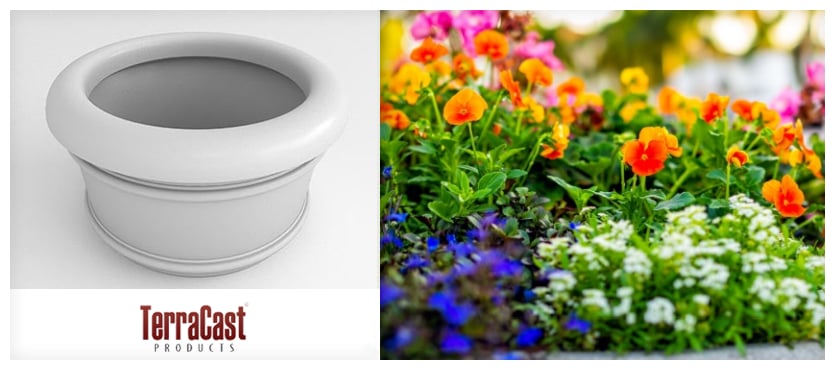Urban landscapes are increasingly becoming the focal points for community life, providing spaces for recreation, social interaction, and a connection to nature amidst the concrete jungle. As cities grow and evolve, so too does the need for sustainable development practices that mitigate environmental impact. One of the most effective ways to achieve this is by incorporating recycled materials into urban landscaping projects. Using recycled materials not only helps conserve natural resources but also reduces waste, lowers carbon emissions, and promotes environmental stewardship. So let’s go over the various environmental benefits of using recycled materials in urban landscaping and how they contribute to creating greener, more sustainable cities.
Conserving Natural Resources
One of the primary benefits of using recycled materials in urban landscaping is the conservation of natural resources. Traditional landscaping materials, such as concrete, wood, and metals, require significant amounts of raw materials and energy for production. By opting for recycled alternatives, we can reduce the demand for virgin resources. For example, recycled plastic can be used to create durable and attractive planters, benches, and other outdoor furnishings, eliminating the need for new plastic production. Similarly, using recycled rubber for pathways and playground surfaces helps conserve petroleum resources and reduces environmental degradation associated with rubber production.
Reducing Waste and Landfill Use
The use of recycled materials in urban landscaping plays a crucial role in waste management by diverting waste from landfills. Landfills are a significant source of methane, a potent greenhouse gas that contributes to climate change. By incorporating recycled materials into landscaping projects, we can reduce the volume of waste that ends up in landfills, thereby minimizing methane emissions. Additionally, recycling materials such as glass, metal, and plastic reduces the need for landfill space, preserving land for other valuable uses, such as green spaces and community gardens.
Lowering Carbon Emissions
The production of traditional landscaping materials often involves energy-intensive processes that result in significant carbon emissions. By using recycled materials, we can reduce the carbon footprint associated with urban landscaping. For instance, producing recycled plastic requires less energy than manufacturing new plastic from raw materials, leading to lower greenhouse gas emissions. Similarly, recycling metals such as aluminum and steel saves considerable amounts of energy, as the recycling process consumes less energy than extracting and refining these metals from ore. By choosing recycled materials, urban planners and landscapers can contribute to the global effort to combat climate change.
Promoting Environmental Stewardship
Incorporating recycled materials into urban landscaping projects sends a powerful message about environmental stewardship. It demonstrates a commitment to sustainable practices and encourages communities to adopt eco-friendly habits. Educational signage in parks and public spaces can highlight the use of recycled materials, raising awareness about the importance of recycling and its environmental benefits. This can inspire individuals to take action in their own lives, such as participating in recycling programs and making more sustainable choices.
Enhancing Durability and Longevity
Recycled materials are often more durable and longer-lasting than their traditional counterparts, making them ideal for urban landscaping projects. For example, recycled plastic lumber is resistant to moisture, insects, and rot, making it an excellent choice for outdoor furnishings and structures. This durability reduces the need for frequent replacements and repairs, conserving resources and reducing waste over time. Additionally, recycled materials can be engineered to meet specific performance criteria, ensuring they can withstand the rigors of urban environments.
Creating Versatile and Innovative Designs
Recycled materials offer versatility and innovation in urban landscaping design. They can be molded, shaped, and colored to create unique and aesthetically pleasing elements that enhance the visual appeal of urban spaces. For example, recycled glass can be used to create stunning mosaics and decorative features, while recycled metal can be fashioned into sculptures and functional art pieces. This flexibility allows designers to push the boundaries of creativity while maintaining a commitment to sustainability.
Supporting Local Economies
Using recycled materials in urban landscaping projects can also have economic benefits by supporting local recycling industries and creating green jobs. Local recycling facilities collect, process, and repurpose waste materials, providing employment opportunities and contributing to the local economy. Additionally, by sourcing materials locally, urban planners and landscapers can reduce transportation costs and carbon emissions associated with shipping materials over long distances.
TerraCast®: Leading the Way in Sustainable Urban Landscaping
The environmental benefits of using recycled materials in urban landscaping are manifold. By conserving natural resources, reducing waste and carbon emissions, promoting environmental stewardship, enhancing durability, enabling innovative designs, and supporting local economies, recycled materials play a crucial role in creating sustainable urban environments. As cities continue to grow, adopting these practices will be essential in fostering a greener, healthier, and more resilient future. Embracing recycled materials in urban landscaping is not just an eco-friendly choice; it is a vital step towards sustainable urban development.
TerraCast® offers a wide range of products that incorporate recycled materials, making them ideal for sustainable urban landscaping projects. By choosing TerraCast® products, you can contribute to creating greener, more environmentally friendly urban spaces. Contact us today for more information.

